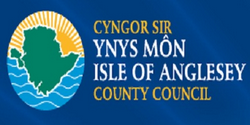Copy of `Anglesey Gov - Equality terms`
The wordlist doesn't exist anymore, or, the website doesn't exist anymore. On this page you can find a copy of the original information. The information may have been taken offline because it is outdated.
|
|
|
Anglesey Gov - Equality terms
Category: Business and Law > Equality terms
Date & country: 27/03/2017, UK
Words: 18
|
Unwitting RacismThis can arise because of lack of understanding, ignorance or mistaken beliefs. It can arise from well-intentioned but patronising words or actions. It can arise from unfamiliarity with the behaviour or cultural traditions of people or families from minority ethnic communities.
Social Model of DisabilityThis proposes that barriers and prejudice and exclusion by society (purposely or inadvertently) are the ultimate factors defining who is disabled and who is not in a particular society.
Social ExclusionThe term describes what happens to people who are deprived of good quality housing, suffer unemployment, low incomes, poor health or live in areas of high crime level.
Racist IncidentA racist incident is one which is perceived to be racist by a victim or by any other person.
RacismRacism in general terms consists of conduct or words or practices which disadvantage or advantage people because of their colour, culture or origin. In its more subtle form, it is as damaging as when in its overt form.
Race RelationsRelations between people of different racial groups. Racial groups mean a group of persons defined by reference to colour, race, nationality, or ethnic or national origins, and references to a persons racial group refers to any racial group into which they fall.
Perception DiscriminationThis is direct discrimination against an individual because others think they possess a particular protected characteristic. It applies even if the person does not actually possess that characteristic. Victimisation occurs, for example, where an employee is singled out for using their workplace complaints procedure or exercising their legal rights.
Positive ActionMeasures that employers may lawfully take to meet special needs.
PrejudiceLiterally means `pre-judgement, forming a view about a person in advance`. For example, racial prejudice is having a negative opinion or attitude about an individual or group based solely upon their race or skin colour.
MonitoringThe process of collecting, analysing and evaluating information to measure performance, progress or change.
DiversityDiversity literally means `variety`. Valuing diversity means valuing people and recognising that everyone is unique/different but of equal worth.
Equality of OpportunityThis means treating people fairly without bias or discrimination, and always within the law. Everyone should be entitled to the same opportunities without regard to race, gender, sexual orientation, religion/belief, disability, age or personal circumstances.
Medical Model of DisabilityUnder this model of disability, disabled peoples inability to join in society is seen as a direct result of having an impairment and not as the result of, features of our society which can be changed.
DiscriminationUnfavourable or detrimental treatment which consists of words or practices which disadvantage or advantage people because of their colour, culture or ethnic origin, nationality, religious belief, gender, disability, sexuality, age, geographical location or other status. Direct discrimination occurs when one person is treated less favourably than another on grounds of any of the protected characteristics.
Discriminatory IncidentAn incident of discrimination is any incident which is perceived to be discriminatory by the victim or any other person.
Action PlanA practical and realistic plan, with an agreed timetable, showing how a policy or strategy will be implemented.
Adverse ImpactA significant difference in patterns of representation or outcomes between groups or individuals, with the difference amounting to a detriment for one or more groups or individuals. Any identified adverse impact in relation to protected groups needs to be addressed when assessing policies or practices.
DisabilityThe definition of disability is broad: `A physical or mental impairment which has a substantial and long term adverse effect on a persons ability to carry out normal day to day activities`

